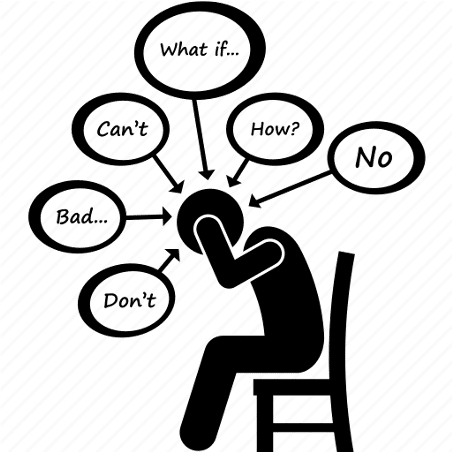5 Crucial Steps to Help With Stress Management at Work
Even in a bad situation, there are elements of good. Just like the sensation of pain signals that we need to give our bodies extra care, stress can help us to meet challenges. Believe it or not, research shows that the right amount of stress can improve performance. However, when stress lingers for an extended period, problems arise. Many of us are aware of the negative consequences of long-term stress: a weakened immune system, threats to our mental health, low energy, increased agitation, and poor judgement. In current times, where we seem to be waking up almost every day to something that has the potential of shaking us to the core and tearing down our mental defenses, how do we protect our mental health and thrive?

1. Nurture emotional intelligence
One aspect of emotional intelligence is the ability recognize, understand, and manage your emotions. This is connected to understanding your body. Your body usually sends out warning signals when it is in distress. However, with how busy we get, we are frequently unaware of these signals or do not understand them. It could do us a world of good to understand our physiology better. Is your body feeling out of balance? Do you feel easily agitated? Overwhelmed? Demotivated? If yes, your stress level may just be on the rise.

2. Emotional contagion
Emotions are transmittable. It is important to surround yourself with relationships, events and hobbies that bring the best out of you, improve your mood, and nurture your growth. Take stock of the individuals at work and in your personal life who take up your energy and who vitalize you. Create appropriate boundaries where needed and manage expectations.

3. Invest your time wisely
It is hard to say “no.” Humans are social beings. We want to please and feel belonged. It is common for others to request our time and resources several times in a day. You are ultimately taking time that should be focused on your work to meet the needs of others. It is important to start your day answering the questions below. If possible, jot down your responses and keep them in sight. They act as a guide for you to stay on track as the requests roll in.

Questions to ask yourself
What did I accomplish yesterday?
What can I delegate?
Which resources do I need to accomplish my top priorities today?
What are the three top priorities I want to accomplish today?
What are some impediments that may affect my goals today?
4. Exercise
Research shows that 30 minutes of light exercise a day that gets your heart racing is enough to keep the doctor away, reduce stress levels and improve your mood. You do not have to go to the gym or take up running. You could get into cycling, swimming, power walking or even dancing. Anything that gets your heart racing for at least 30 minutes.

5. Do not ruminate
We can be our own worst critiques. We tend to scrutinize conversations/presentations that could have gone better, or mistakes that we have made. It is good to recognize faults but not to dwell on them. It is better to view them as learning opportunities and leverage your problem-solving skills when applicable.

By Shirley Godwin, M.S.
